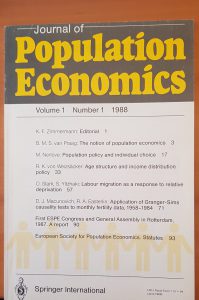
The Journal of Population Economics and GLO communities recently discussed the rise of Population Economics to a significant and flourishing research field in economics and beyond. In an online event on November 19, 2020 hosted by UNU-MERIT/Maastricht, the meeting presented a panel debate on Publishing in Population Economics.
A number of distinguished editors outlined the evolution in the past, expressed their views about future perspectives and the contributions by Alessandro Cigno serving the Journal of Population Economics as an Editor for over 33 years since the beginning.
Professor Cigno had decided to leave this position at the end of the year 2020 while celebrating his 80th birthday on December 24.
Sandro Cigno was one of the founding editors in 1988 and has had a remarkable impact on the position of the Journal in general and its profile in the theory of family and household economics.
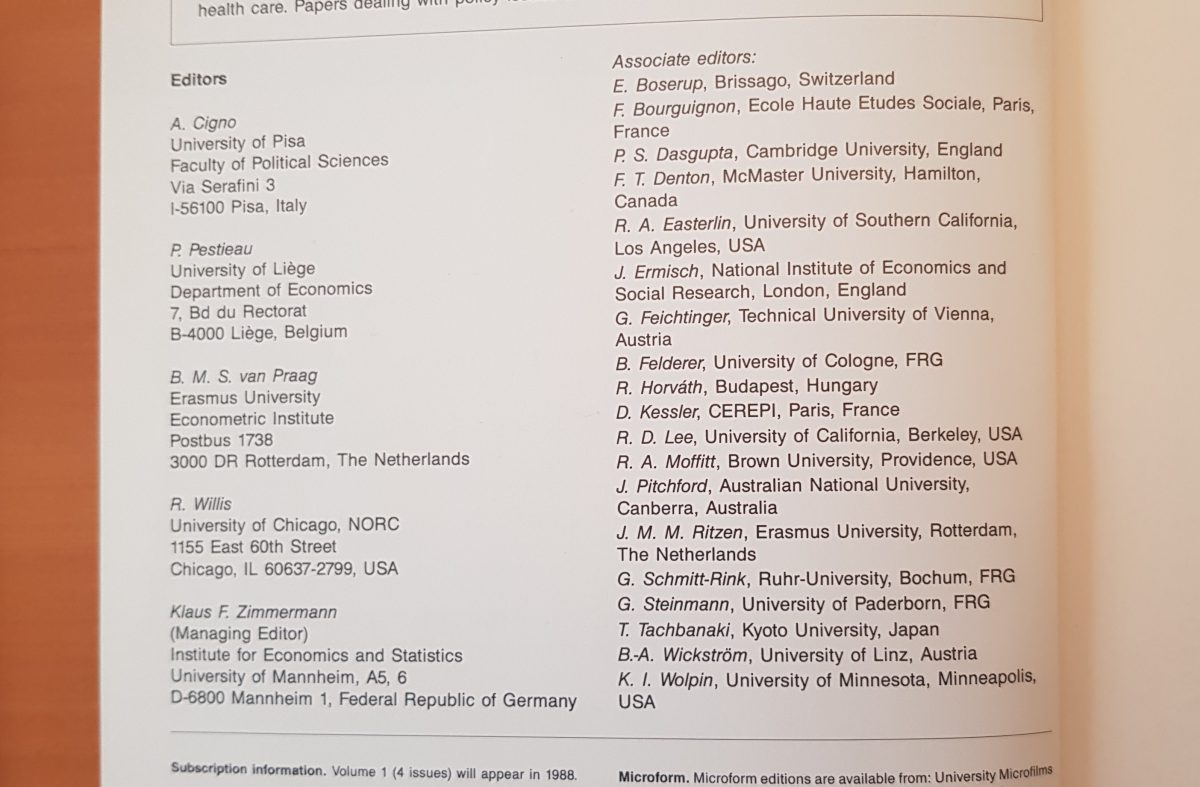
On the occasion, the Editor-in-Chief of the Journal, Klaus F. Zimmermann, said: “We all will miss Sandro as a strong and independent thinker, a fair and engaged editor, and a reliable and loyal partner over three decades. His friendship and the many inspiring contributions have made the joint mission of creating and establishing the field of Population Economics an enjoyable and doable task. Impressed by his spirit, fitness and ongoing research engagement, we all wish him at his 80th birthday ongoing good health, fun with his work and last but not least enjoyment with his lovely family.”
Happy birthday, happy holidays, all the best for 2021 and beyond; and thank you very much!
Alessandro Cigno
Università di Firenze; Editor, Journal of Population Economics, 1988 – 2020

“It is a great pleasure to say a few words on behalf of Sandro Cigno and to express my high esteem of his scientific career and of his personality. I have known Sandro for many years. If we had to date it, I would say our friendship goes back to the early days of the European Society of Population Economics and the Journal of Population Economics.
I have great respect for his very long scientific career. This career is marked by excellence and consistency. Sandro offers a fine example of academic longevity. This type of longevity seems to me more common in Europe than in North America. The explanation may lie in the specific incentive structures that prevail in these two continents.
My first scientific contact with Sandro was reading his remarkable book “Economics of the Family” published in 1991. One of the first books on the subject, which had a great influence on research in family and population economics. In Sandro’s research, I have mainly been interested in his work at the crossroads of population and public economics. He has published several groundbreaking articles in public economics. I would pinpoint two articles. First, there is the one where he shows the implications that endogenous fertility can have on the design of family policy. “Endogenous fertility and the design of family taxation” (with A. Balestrino and A. Pettini). Then there is the article where he studies social policy in a context of asymmetric information in which many individual characteristics are not observable. “Doing wonders with an egg: optimal redistribution when households differ in market and non- market ability” (with A. Balestrino and A. Pettini).
When we started the Journal of Population Economics adventure, theory had an important role. Gradually this role has diminished to almost disappear. This development is not unique to Population Economics; it is no less regrettable. I sometimes have the feeling that, to use Tjalling Koopmans‘ expression, we have entered the era of “measurement without theory”. I am grateful to Sandro for having over the past decades pursued the idea that all empirical work needs to be preceded by sound theory. My hope is that soon we will experience a period with more concern for “measurement with theory”.
Finally, a last word on the personality of Sandro. Sandro is a true gentleman, a well-rounded person whom I am happy to count among my friends. He has had an indisputable and lasting influence on our discipline, Population Economics.”

Pierre Pestieau (Université de Liège) during a Panel on November 19, 2020 on Publishing in Population Economics in a public Webinar of the Journal of Population Economics presenting Volume 34, Issue 1, 2021. The event was hosted by UNU-MERIT, Maastricht.
In the Panel Debate in the honor of Sandro Cigno participated the following editors:
Shuaizhang Feng (Jinan University; Editor, Journal of Population Economics, 2020 – )
Oded Galor (Brown University; Editor, Journal of Population Economics, 2019 – ; Editor-in-Chief, Journal of Economic Growth)
Pierre Pestieau (Université de Liège; Editor, Journal of Population Economics, 1988 – 1995; previously: Co-Editor Journal of Public Economics)
Erdal Tekin (American University; Editor; Journal of Population Economics, 2010 – 2018; Editor-in-Chief Journal of Policy Analysis and Management)
Katharina Wetzel-Vandai (Economics Editor, Springer Nature)
Junsen Zhang (Chinese University of Hong Kong; Editor, Journal of Population Economics, 2001 – 2019; Coeditor, Journal of Human Resources)
Klaus F. Zimmermann (UNU-MERIT & Maastricht University; Editor-in-Chief, Managing Editor, Journal of Population Economics, 1988 – ; previously: Managing Editor, Economic Policy)
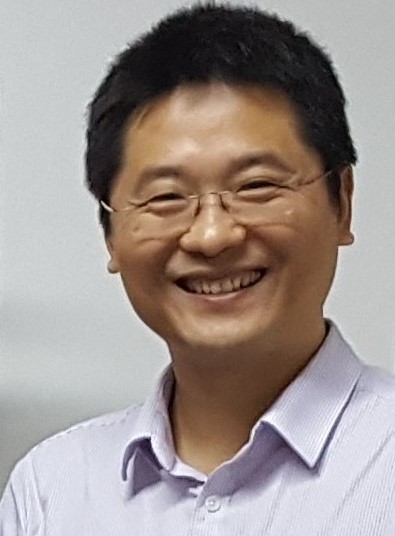
Shuaizhang Feng 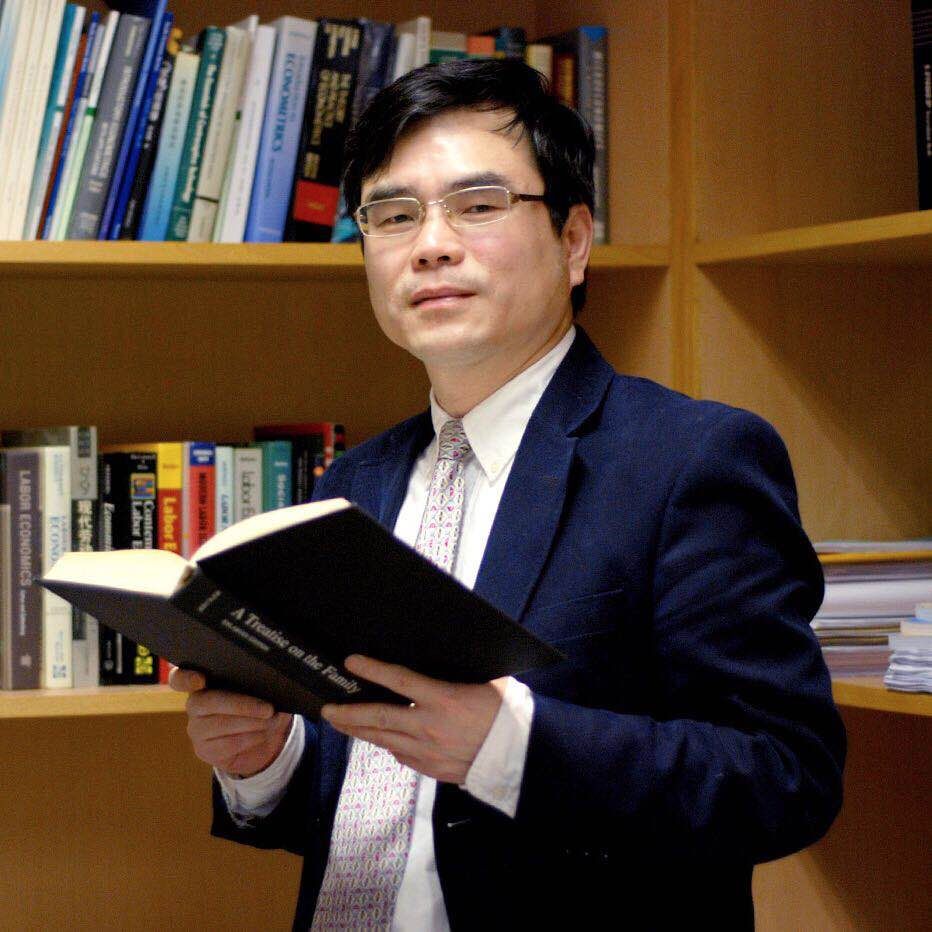
Junsen Zhang 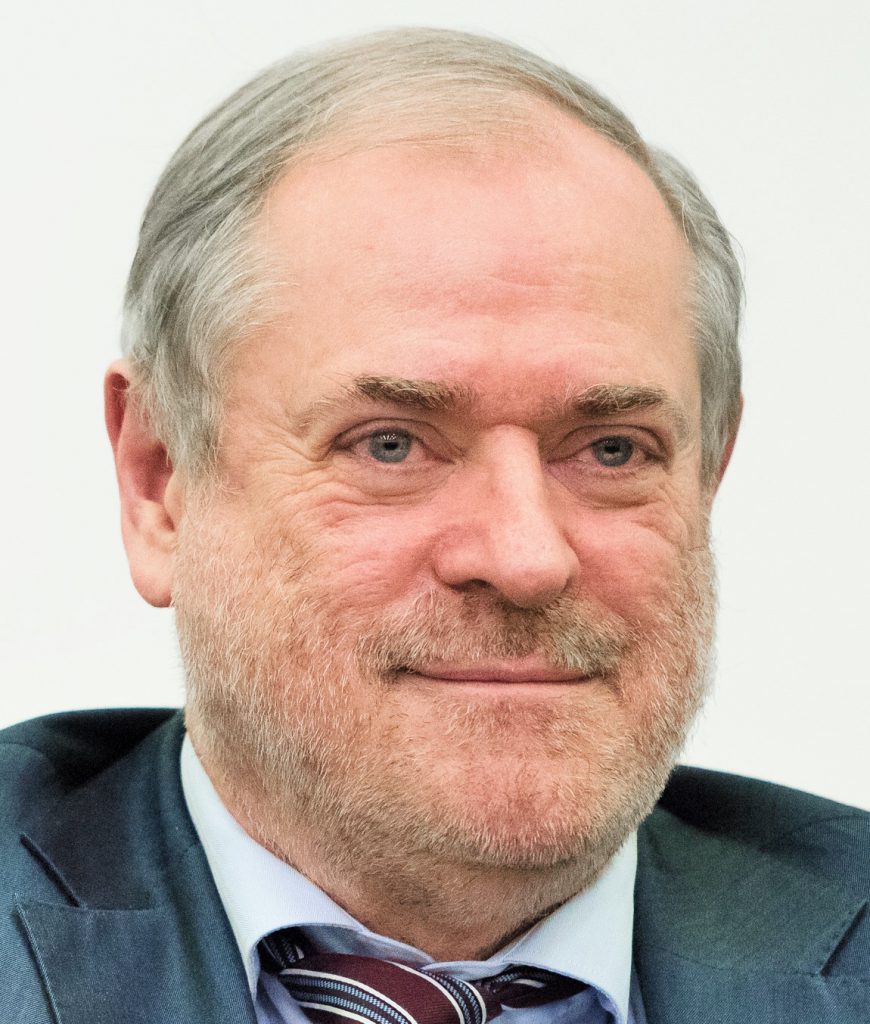
Klaus F. Zimmermann

Pierre Pestieau 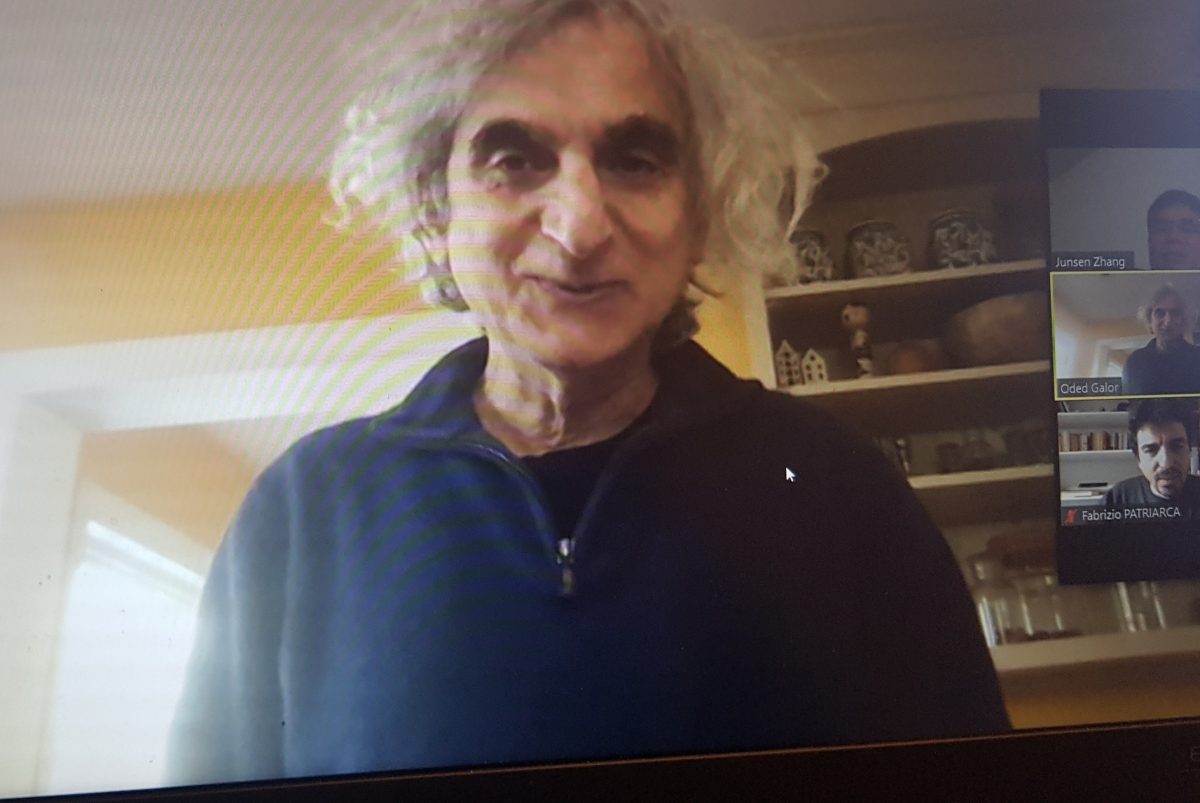
Oded Galor 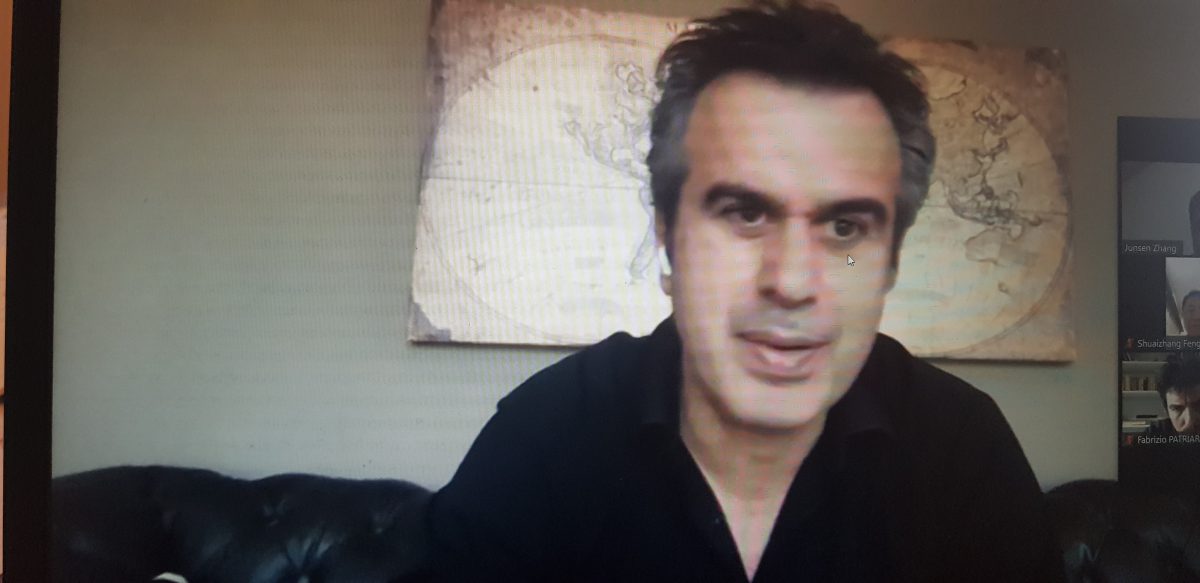
Erdal Tekin 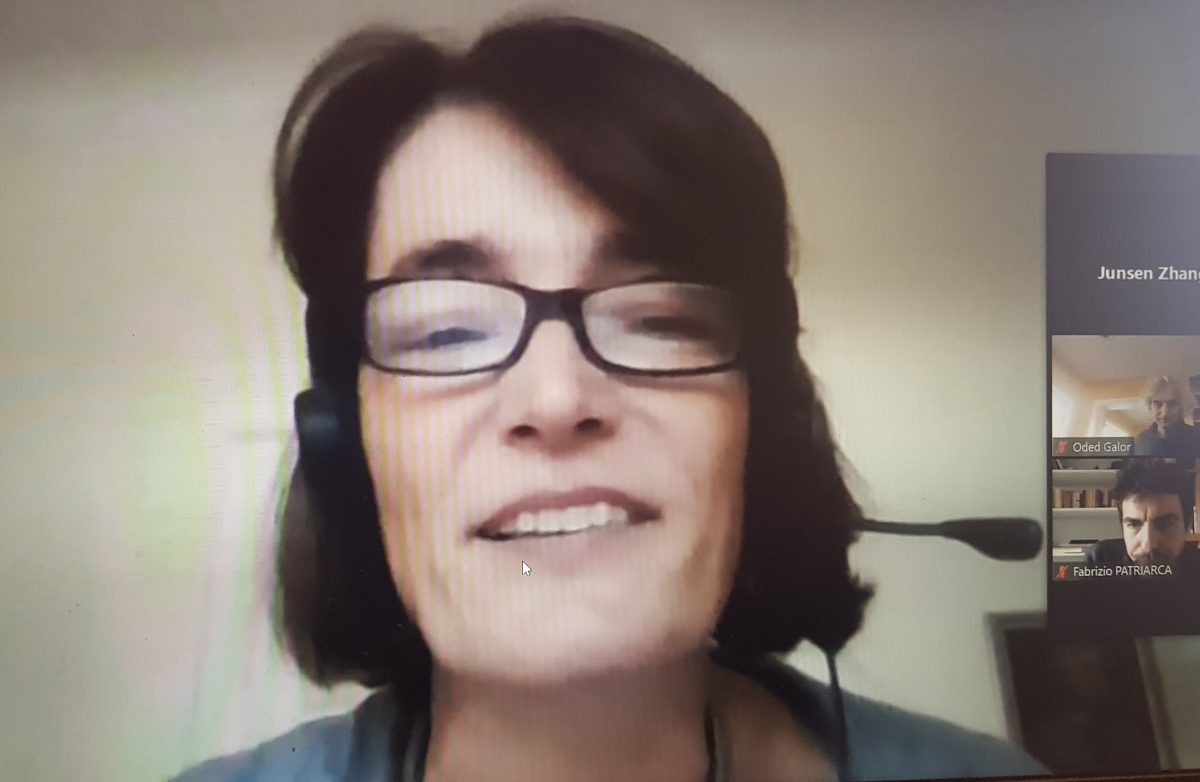
Katharina Wetzel-Vandai
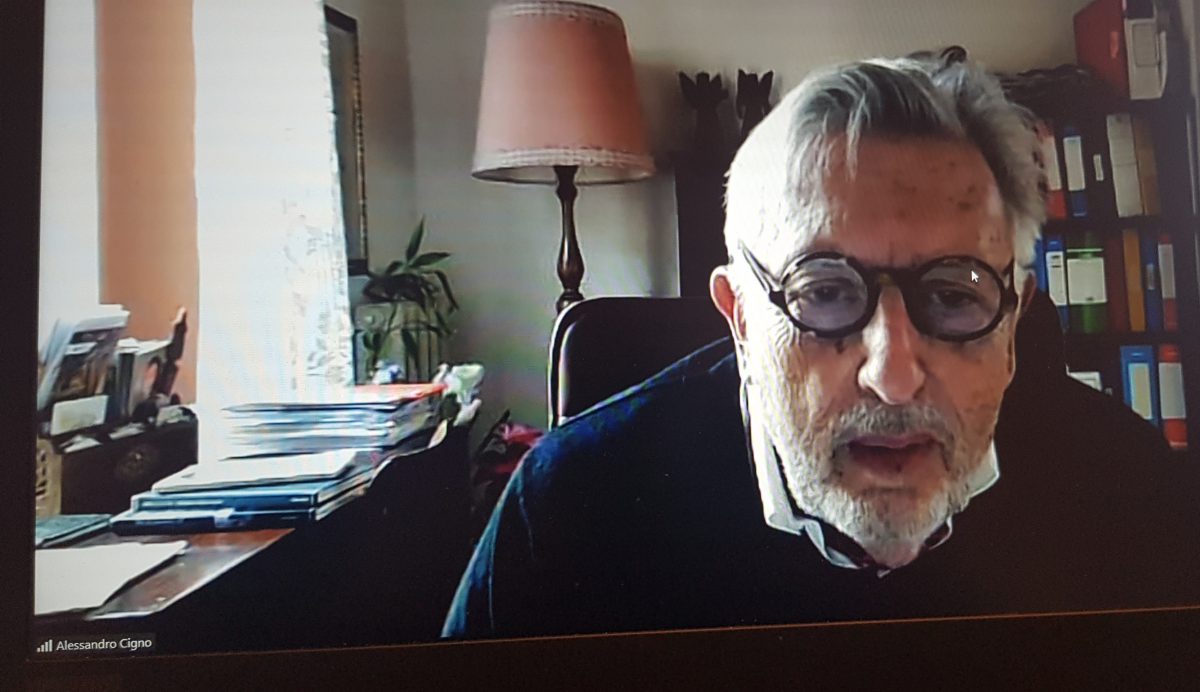
Video of the Journal event including the panel discussion on Publishing in Population Economics.
Ends;

